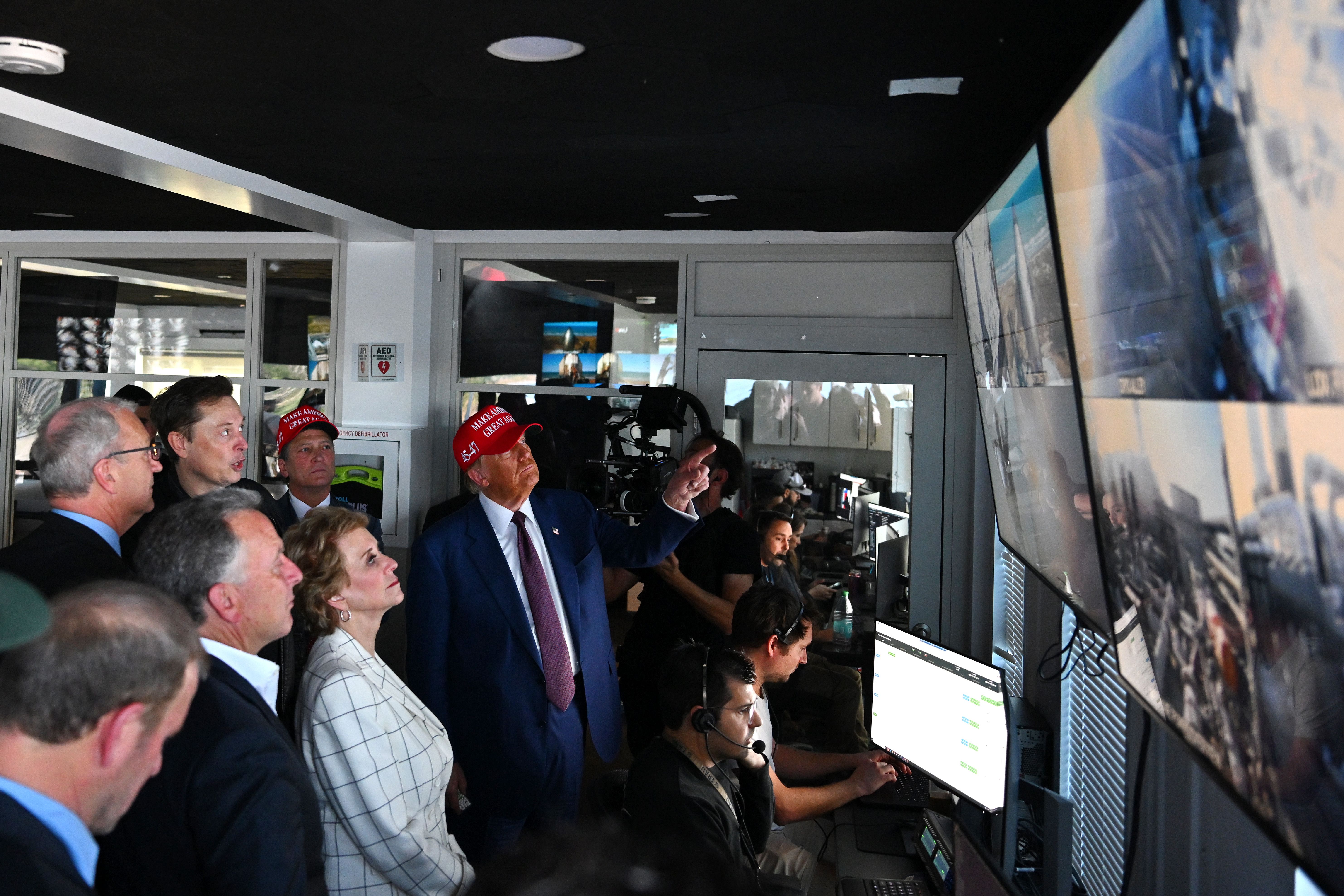Let’s get in touch
Schedule a meeting with our Expert to discuss your needs and explore tailored software solutions.
Support center +91 9825 122 840
SpaceX launches Starship for the sixth time — with Trump on site to watch

SpaceX conducted the sixth flight test of its massive Starship rocket on Tuesday afternoon, and although the company did not replicate the history-making booster catch, the company did welcome a very special guest: President-elect Donald Trump.
Trump, who will soon be sworn into office for his second term, said on X that he was headed to Texas to watch “the launch of the largest object ever to be elevated, not only to Space, but simply by lifting off the ground.”
His visit is just the latest sign of a growing intimacy between himself and SpaceX CEO Elon Musk, who was recently appointed to head, along with entrepreneur Vivek Ramaswamy, a newly created Department of Government Efficiency office (DOGE). It’s unclear how much power the office will have (it appears to be purely advisory), but judging by Musk’s public pronouncements, it could help to usher in wide-sweeping changes to major federal government programs.
Trump’s visit was also a sign of encouragement for SpaceX’s Starship program, which the company says has been hampered by exactly the type of government inefficiencies Musk is looking to slash with DOGE — specifically, the slow turnaround times for launch license approvals by the U.S. Federal Aviation Administration.
Trump has said that he wants to enable SpaceX to reach Mars before the end of this term — which could theoretically be possible, given that the next Mars-Earth transfer window is in 2026 — and essentially gave his blessing to Musk’s Mars dreams: “Get going, get that spaceship going, Elon,” he said at an October 24 rally.
Tuesday’s flight test, the sixth in the Starship development program, did not feature any spectacular surprises or disappointments. The company was planning on attempting to catch the 233-foot-tall Super Heavy booster with arms of the massive launch tower, as it did during the fifth test in October, but the company said that the booster did not pass the “commit criteria” required for the mission director to authorize the attempt. Instead, the booster splashed down in a designated area in the Gulf of Mexico.
SpaceX achieved at least one new milestone during this test: The upper stage of Starship, which is also called Starship, reignited one of its engines in space for the first time. It’s a capability that will be key to enabling reuse of the upper stage in orbit, in addition to the booster.
SpaceX has made rapid progress in its Starship development program since launching the first fully integrated rocket for the first time in April 2023. The nearly 400-foot-tall vehicle is a cornerstone of the company’s plans to transport crew and cargo to interplanetary destinations, and also to NASA’s plans to return humans to the moon for the first time since the Apollo era.
Work with us




